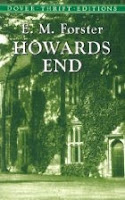 Google the title of this book and you’re hard pressed to come up with any results but the film from 2008 staring Frances McDormand and Amy Adams. There was, however, a book before the film and although I haven’t actually seen the film (but will asap), I’m willing to bet the book is better.
Google the title of this book and you’re hard pressed to come up with any results but the film from 2008 staring Frances McDormand and Amy Adams. There was, however, a book before the film and although I haven’t actually seen the film (but will asap), I’m willing to bet the book is better.What a fun book. Seriously, I don’t know why it isn’t more widely read. You can find it on Amazon (but nothing else by Winifred Watkins) and I’m sure there are libraries which carry it, but I’ve never run across it before. It should be taught in schools to give younger children a way into literature, because it’s really just fun.
Miss Pettigrew is a vicar’s daughter who grew up prim, proper and prudish. Now, at 40, she has no qualifications to speak of and no one to take care of her. Hitherto, she has supported herself as a governess of questionable abilities, but is finding it more and more difficult to obtain a post as she ages. She has one last chance to gain employment before she is kicked out of her rooms and lands on the streets of London. Scared to death of the future, she knocks on the door of the only suitable position available and finds herself transported into a completely unknown world. By combining her upbringing with her ability to imitate her former employers, she manages to find her way in this new setting with amazing, and sometimes unintentional, alacrity. The situation challenges Miss Pettigrew to throw off her strict, Victorian upbringing and enjoy life for a day before the opportunity is revoked forever. The results are laugh out loud funny. It’s the ultimate underdog story in which you can’t help but root and be thrilled for the unlikely heroine while laughing at her exploits.
Why, oh why couldn’t we have skipped something else (The Great Gatsby springs to mind) and read this in school? Why didn’t they let Winifred write more like it? It’s brilliant. Loved it. Would have loved it as a teenager too. There are enough themes to discuss for a good few classes, so it’s not entirely frivolous, although it feels like it. It’s a book that makes you want to read more of the same. If you’re looking for a book to get you motivated to read classics, this is it. It’s a comedy, a drama and a love story all rolled into one. 5 out of 5 for this one.



